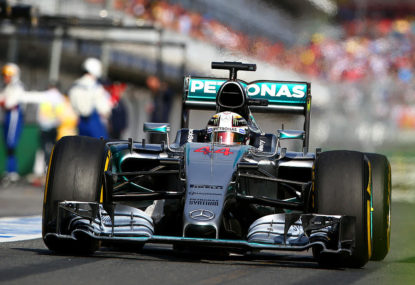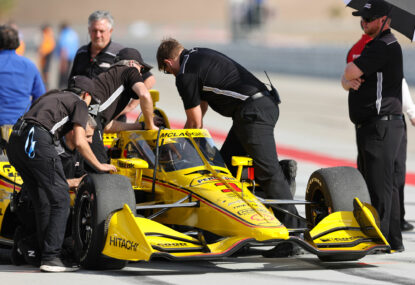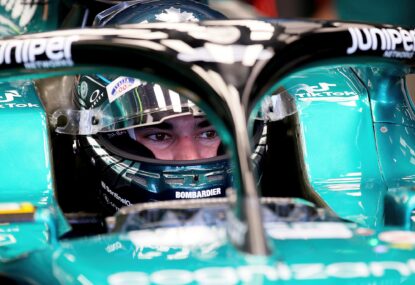Brexit: a made-up word that precipitated a vote for a hypothetical action with unforeseeable consequences. If there’s one thing for certain, it will surely earn at least one vote in one of those dictionary ‘word of the year’ competitions come December.
A mildly amusing word though it may be (not to mention the spin-offs ‘Bregret’, ‘Frexit’, ‘Nexit’ or, in particular, the Swedish ‘Sexit’), the consequences are very much rooted in the real world, full of those real people we keep hearing so much about.
Some of those real people work in Formula One, and that, dear reader, is the somewhat tenuous excuse for this column dipping its toes into the world of continental politics. What sort of effect will Brexit’s slow and painful withdrawal from the European Union have on our humble sport, and when?
Immediately
Good: Currency
It’s not just holidaymakers salivating over their rapidly improving currency outlook for their winter getaways – UK-based Formula One teams, counter-intuitively, will be the recipients of a small consolation prize for losing their links to the EU.
Formula One calculates its prize money in US dollars, and the pound has crashed from its pre-Brexit value of US$1.50 to as low as US$1.33 at the time of writing – a massive 17-cent loss in a matter of days.
For example, Williams stands to earn US$77 million in 2016, but when last week this would have been £50.82 million – notwithstanding amounts already paid – this week it adds up to £57.75 million. Talk about bang for your buck.
The boost is less pronounced for Formula One’s two euro-using teams, Toro Rosso and Ferrari, which each stand to earn approximately 3.3 per cent more per US dollar.
Sauber will see less of a gain, with the Swiss franc trending roughly on average.
Bad: Currency
But the good news is short lived, because those extra pounds will undoubtedly be spent making up the shortfall left by the pound losing ground against all major currencies, including the euro.
In none of the nations still to host their grand prix this year (UK excepted) has the pound not fallen in value, and the euro’s purchasing power has resisted the Brexit effect in only Mexico and Hungary.
The cost of transport, accommodation, food – everything will be more expensive for teams as they complete the longest calendar in Formula One history.
Then there’s the costs of external parts and services. Anything a British team buys from a European manufacturer is now almost 10 per cent more expensive – and there’s still a long way to go before the dust settles on the economic outlook.
Some time in the future
Bad: Movement of people
That the free movement of people is a long-term negative is somewhat ironic given preventing the free movement of people was a leading argument for the leave campaign, but it could prove detrimental for a highly technical sport comprising thousands of specialists.
What the final immigration framework will look like after Britain’s two-year exit negotiations conclude remains murky, but it can be only more restrictive than current policy.
How bad this will be for the so-called UK ‘motorsport valley’ in which all but three of the sport’s teams reside, is uncertain. British expertise will continue to play a significant role in the sport, and it is open to question whether Ferrari, Toro Rosso, and Sauber might feel this new distance more than the those inside the motorsport bubble.
On the other hand, the likes of Renault, for example, may make the decision that it is of net benefit to centralise its Formula One outfit to France rather than juggle the chassis and power unit operations across the new diplomatic divide.
Bad: EU investigation
Bad in the sense that such an investigation, as supported by Sauber and Force India and based on the unequal distribution of money and power, may now be less likely to proceed given most of the sport may find itself beyond the jurisdiction of the EU.
While there may yet be two years before Britain’s Formula One teams cease to be European, the fact that such investigations take far longer – the European Union’s dispute with Microsoft lasted 16 years – may mean tackling Formula One on behalf of Sauber, the single EU-based complainant, is dropped into the too hard basket.
This may prove equally disappointing for FIA president Jean Todt, who told the press last year that, “Whatever comes out can only be in favour of the FIA,” as the governing body seeks to re-assert itself in the battle against Bernie Ecclestone for control of the sport.
Good: People who enjoy politics
A perverse item for the pro column, yes, but not one to be discounted. For those who loved following Formula One’s off-track political shenanigans, there’s never been a better time to be a fan.
Our sport and the EU have had many run-ins in their time – from dispute at the turn of the century that led to the separation of Formula One’s regulatory and commercial spheres to the part Formula One played in the march of the tobacco advertising ban – and there’s no doubt the excruciating uncoupling of Britain from the European Union will write one or two more chapters yet.
But with two years, minimum, still on the clock, there’s no telling how far-reaching Brexit’s effects will be.




































































































